Animal Farm
Animal Farm is a novella written by George Orwell (the pen name of Eric Arthur Blair) and first published in England in 1945. Often regarded as a masterpiece of allegorical fiction, Animal Farm, a beast fable, delves into themes of power, corruption, and propaganda. The story revolves around a group of farm animals who stage a political uprising to overthrow their human farmer in pursuit of freedom and equality. The original first edition is notably rare and sought after by collectors, and due to its cheap wartime production quality, it is extremely difficult to find in collectible condition. The first American edition is more common than the English edition but is also difficult to find in nice condition.
Hardcover. First American Edition, First Printing. Octavo, black cloth with gilt lettering on spine. New York: Harcourt Brace, 1946. #10310.
Near fine in very good or better dust jacket with usual rubbing and some light shelf wear.

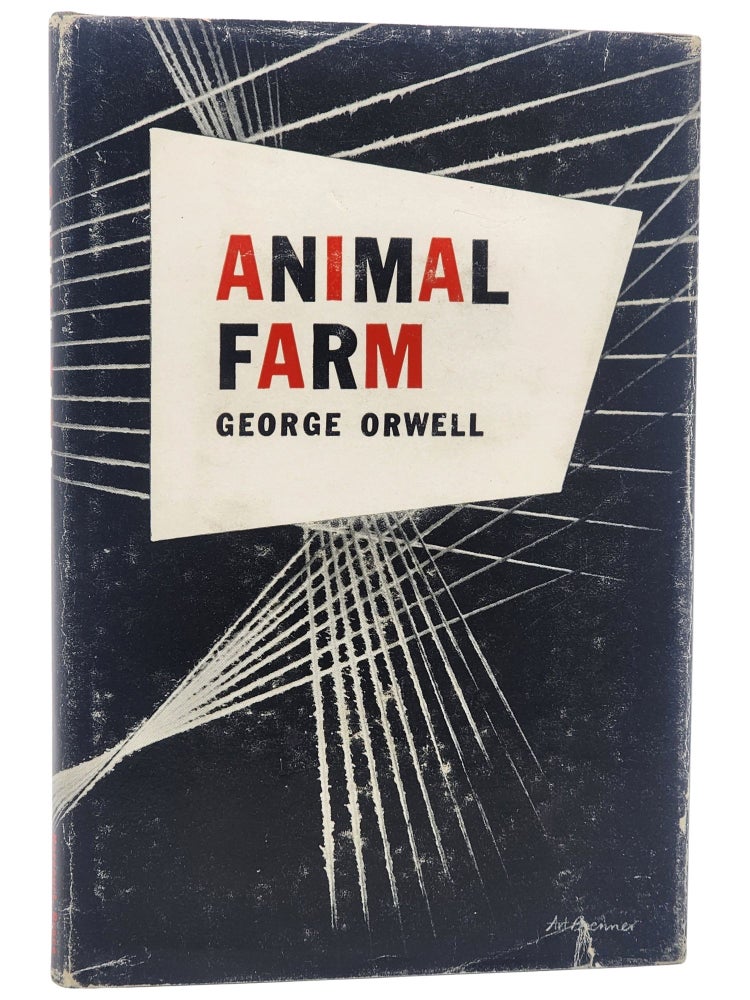
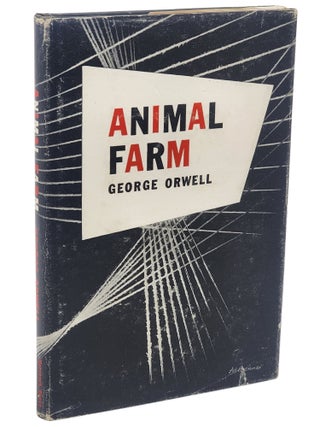
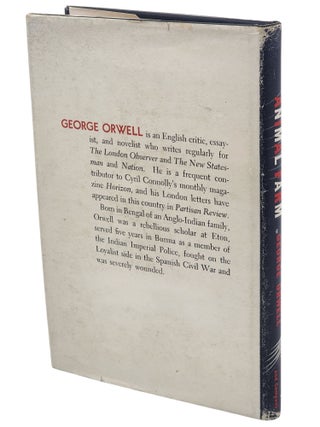

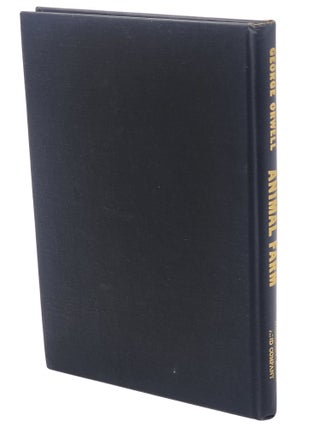
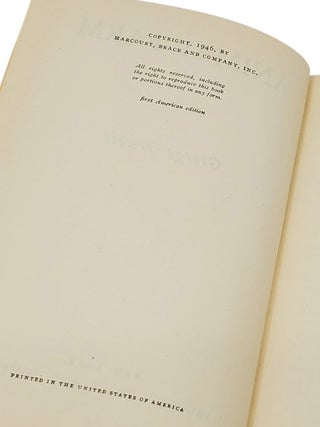
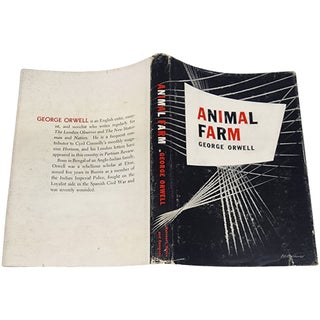
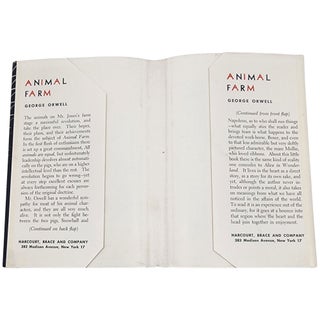
Animal Farm by George Orwell (the pen name of Eric Arthur Blair) is a classic work of dystopian literature first published in 1945. This novella, presented as a beast fable, delves into themes of power, corruption, and propaganda, centered on a group of farm animals determined to overthrow their human owner and establish their own society.
The story unfolds at Manor Farm, where the animals, influenced by Old Major, the farm’s venerable boar, are roused by his dream of an animal-controlled society. Spurred by this vision, they revolt against their negligent and alcoholic owner, Mr. Jones. Following their victorious rebellion, the pigs, revered for their intelligence, assume leadership.
Under the pigs' governance, the farm initially flourishes. They craft commandments to steer their society, championing principles like "All animals are equal" and "No animal shall sleep in a bed." Yet, as time advances, the pig leaders, notably Napoleon and Snowball, exhibit increasing corruption. They broker deals with neighboring humans, adjust the commandments to their advantage, and savor privileges previously exclusive to humans.
In a pivotal shift, Napoleon asserts himself as the paramount leader, expelling Snowball and reigning with an iron hoof, backed by his loyal canine enforcers. It dawns upon the animals tragically late that their liberators have morphed into oppressors. The pigs, now barely distinguishable from the humans they opposed, underscore this transformation with the amended commandment: “All animals are equal, but some animals are more equal than others.”
Animal Farm is widely perceived as a satirical commentary on totalitarian regimes, most pointedly reflecting the Soviet Union under Joseph Stalin. The novella's characters and events echo many historical figures and incidents from the Russian Revolution and its subsequent years.
Orwell masterfully spotlights the insidiousness of unchecked power, the perils of unthinking obedience, and the betrayal of lofty ideals for selfish gains. Through the tragic trajectory of the animal uprising and the ensuing autocracy, he critiques how the quest for power can lead to manipulation and subjugation, birthing a society eerily mirroring its predecessor.
Animal Farm remains an enduring literary classic, offering a poignant and devastating critique of totalitarianism and the corruption of revolutionary ideals. It has been adapted for film twice, an animated film (1954) and live-action TV version (1999).